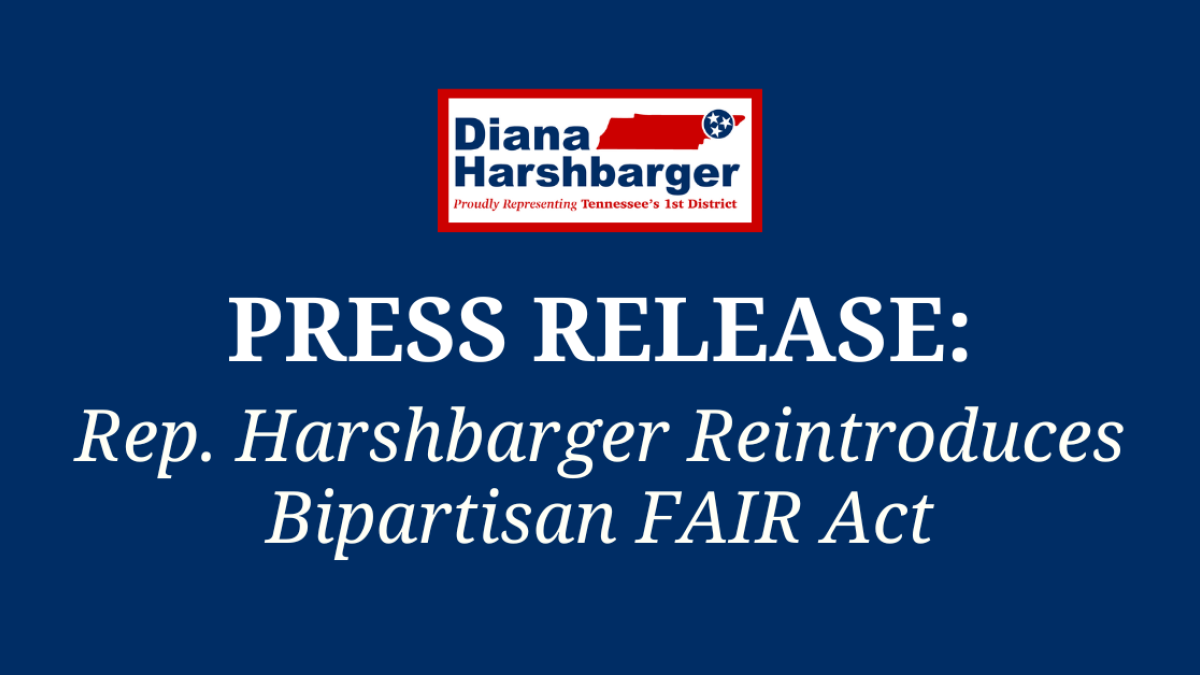WASHINGTON — U.S. Representatives Diana Harshbarger (R-TN), Chellie Pingree (D-ME), Sam Graves (R-MO), Carol Miller (R-WV), and Don Davis (D-NC) have reintroduced the bipartisan Fair Access in Residency (FAIR) Act. This legislation seeks to ensure that taxpayer-funded physician residency training programs provide equal opportunities for both Doctors of Osteopathic Medicine (DOs) and Medical Doctors (MDs). The bill addresses disparities and barriers within Medicare-funded Graduate Medical Education (GME) programs that often exclude or impose undue burdens on DOs. Rep. Harshbarger issued the following statement: “I represent a very rural part of Tennessee that’s already facing physician shortages. There’s no reason to continue practices that keep qualified doctors from serving the communities that need them most. That’s why I’m proud to lead the reintroduction of this legislation. “Congress must ensure our taxpayer-funded residency programs are tapping into the full pipeline of talent — both DOs and MDs — without discrimination. The FAIR Act promotes transparency and fairness in GME, with the ultimate goal of increasing the number of trained physicians ready to care for our communities.” Rep. Pingree said the following: “Doctors of osteopathic medicine play a critical role in our health care system, particularly in Maine's rural and underserved communities. Sadly, osteopathic medical students are being held back by outdated biases and systemic barriers that have no place in modern medicine. Our bipartisan FAIR Act takes an important step toward ensuring transparency and accountability in residency programs, so that all qualified students—regardless of their degree—have a fair shot at continuing their training. I’m proud that Maine is home to so many dedicated DO students, and I’ll keep doing all I can to remove unnecessary hurdles that stand between them and the communities that need their care.” — Rep. Pingree Rep. Miller added: “It is imperative that there is full transparency for all federally funded graduate medical education to provide an accurate record of who is getting selected for residency programs. The Fair Access in Residency (FAIR) Act will improve reporting requirements and ensure that osteopathic medical students are treated fairly when applying for residency slots. The West Virginia School of Osteopathic Medicine enrolls more than 800 students, and this legislation will make certain they are treated fairly when applying to residency programs,”said Congresswoman Miller. Below are further statements of support: "Doctors of osteopathic medicine (DOs) are essential to the physician workforce, particularly in rural and underserved communities, yet unnecessary barriers exist that limit their access to residency opportunities. That’s why the National Rural Health Association (NRHA) supports the FAIR Act, which would increase transparency, address physician shortages, and ensure a more equitable residency selection process. We commend Representatives Harshbarger, Pingree, Graves, Miller, and Davis for their leadership in advancing policies that support rural providers and urge Congress to act on this critical legislation.”— Alan Morgan, CEO, National Rural Health Association “As our nation grapples with a worsening physician shortage, we must eliminate unnecessary barriers that prevent highly qualified osteopathic medical students from accessing residency opportunities,” said AACOM President and CEO Robert A. Cain, DO. “The FAIR Act provides a commonsense solution to longstanding inequities in the residency selection process—without federalizing medical education, imposing quotas, or regulating the makeup of residency programs. We are deeply grateful to Representatives Harshbarger, Pingree, Graves, Miller, and Davis for their leadership in advancing a fairer, more transparent system.” The FAIR Act would require federally funded GME programs to: - Report annually the number of residency applicants from both osteopathic (DO) and allopathic (MD) medical schools, and how many were accepted from each;
- Affirm annually that they accept applications from both DO and MD schools and that, if an exam score is required, both COMLEX-USA (DO) and USMLE (MD) licensing exams are accepted.
Programs that fail to report this information would be subject to a 2% annual reduction in their Indirect Medical Education (IME) payments. For further background, click HERE. Click HERE to view the bill text. | 
